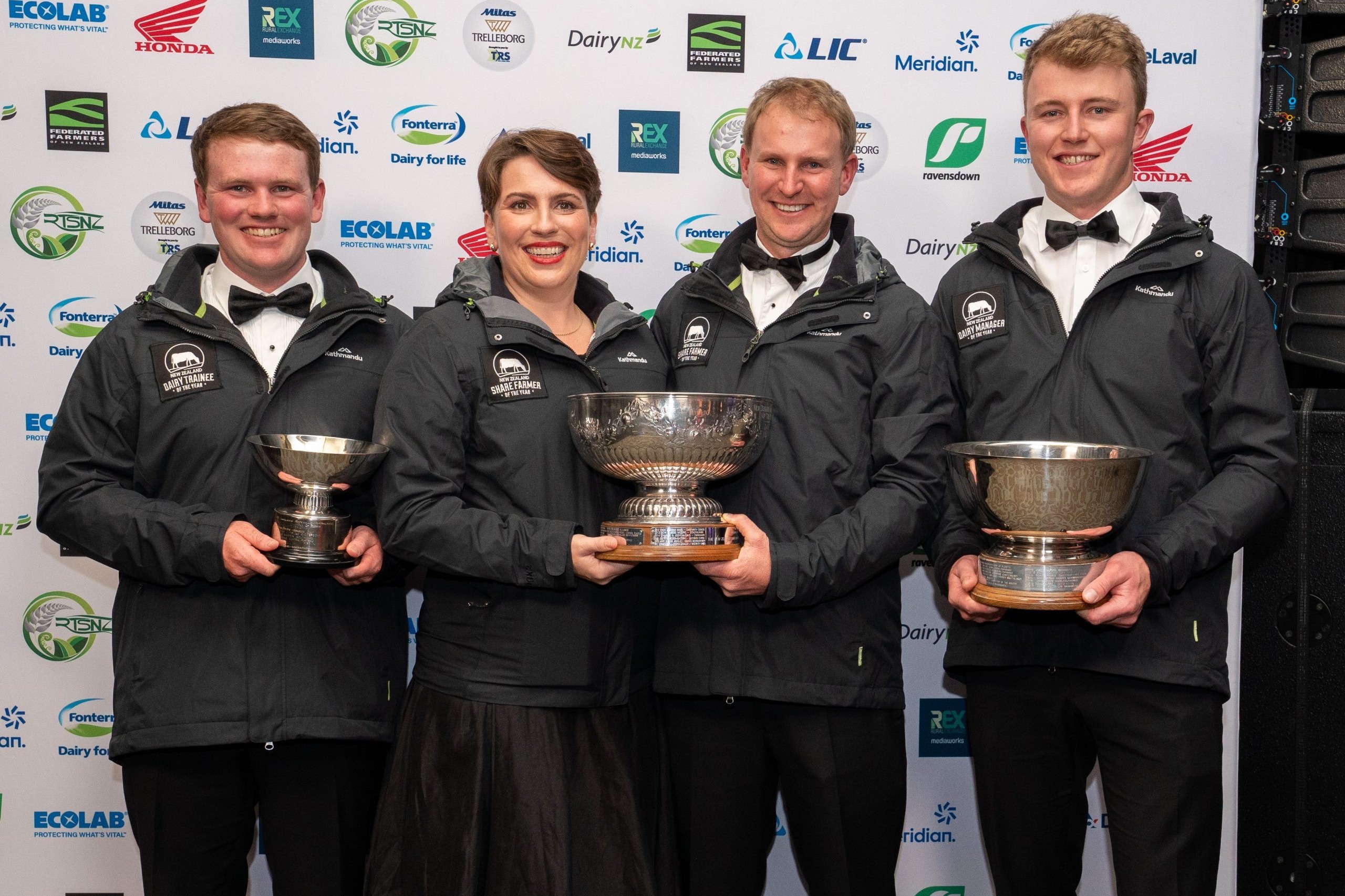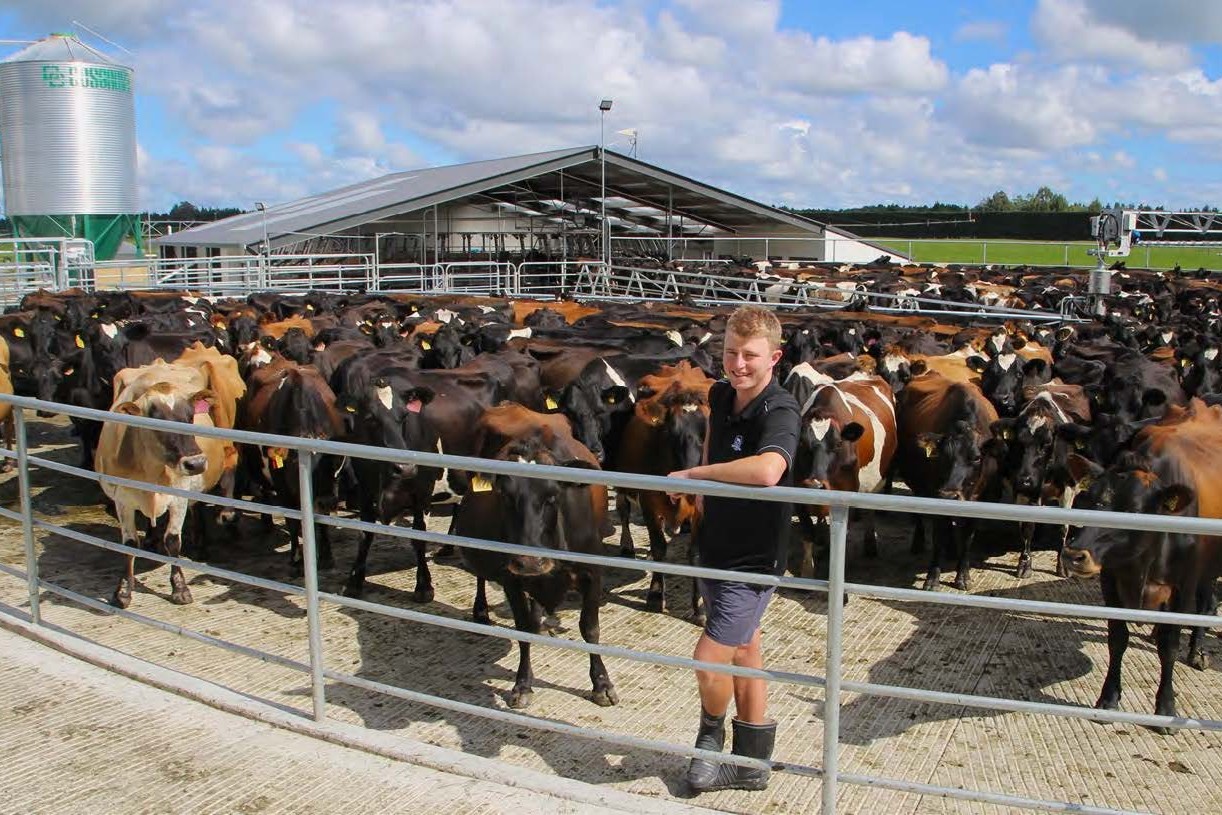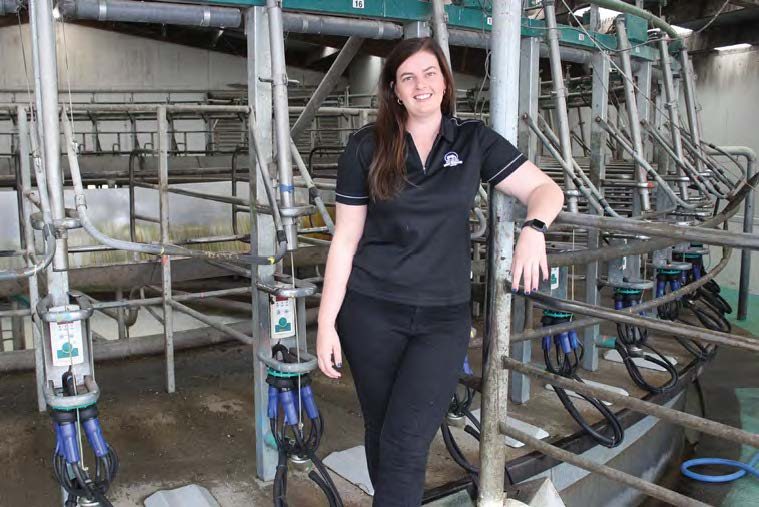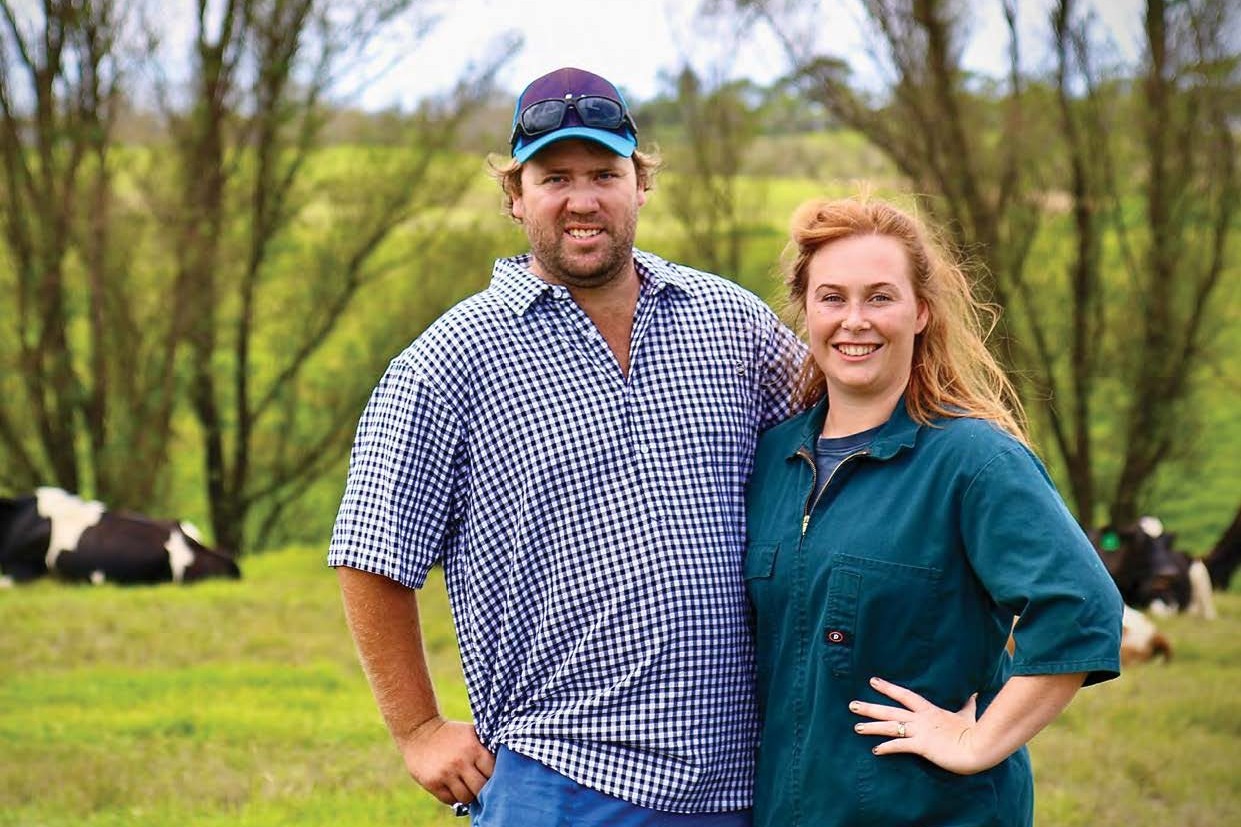Wahine winners to the fore
Women have made a significant mark on the New Zealand Dairy Awards, this year dominating the list of winners. By Elaine Fisher
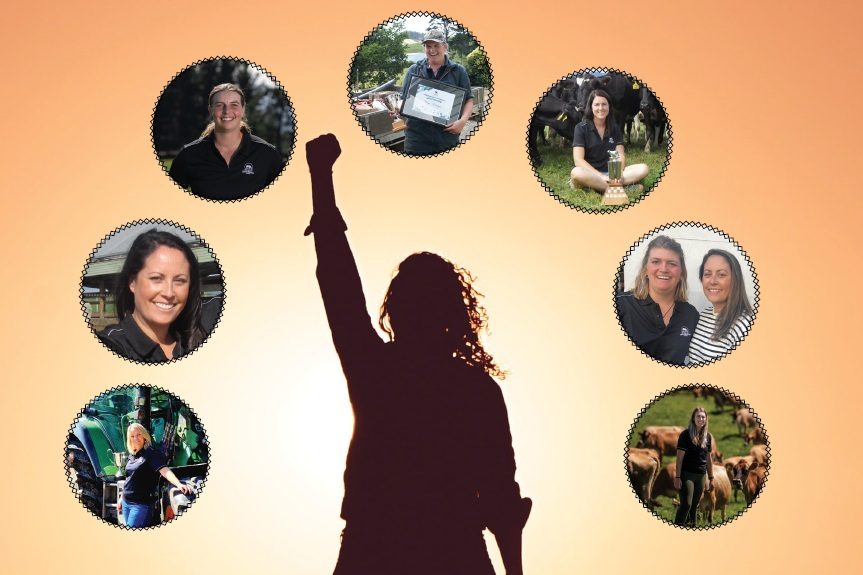
Women were winners in 19 of this year’s 29 regional NZ Dairy Industry Awards, 13 as individual winners and six with their male partners, – a record for the awards.
“It is cool that women have taken out the majority of the regional awards and this reflects that women are becoming more prominent in the awards and the industry in general,” NZ Dairy Industry Awards executive chair Amber Carpenter says.
While the number of women regional winners this year is a record, women dominated the national dairy trainee awards for four consecutive years until last year when Peter O’Connor won. In 2018 Simone Smail took the top title, the following year it went to Nicola Blowey with Grace Gibberd taking the 2020 award and Ruth Connolly winning in 2021.
Amber says no one factor has contributed to making dairying attractive to women, but she’s delighted more are choosing dairying as a career, believing that can only be good for the industry and all those who work in it.
“Women and men bring different strengths and diversity of thought to the table which is really important. In my own case, my husband Fraser and I often approach things differently. At times his way may not be perfect and nor is mine but when we combine our thought processes we usually come up with a good solution,” Amber says. She has a background in the corporate world and fashion industry and in 2017 she and Fraser won the Share Farmer of the Year title for the Auckland/Hauraki Region.This year’s female winners come from diverse backgrounds, but all share a goal Amber believes is common among most dairy farmers – to be part of an exciting industry producing nutritious food for the world.
“Women have always been an important part of farming, but in the past have probably not been visible. Going back a few generations, women were at home looking after kids, in itself a mammoth task, and most did not have a job outside the farm.”
They were often involved in decision-making, feeding staff as well as helping with milking and calving. “Women have had a huge impact and added a lot of value to the industry. As the years have gone on the gender gap is closing, bringing more equality so your gender matters less.
“Women have become more vocal. They have a voice and what they have to say is important. The women who have gone before us in the industry have shown immense courage and laid the way for the generational changes we are now seeing.”
Technology has also contributed to making it easier and more attractive for anyone to enter the industry. “Technology is helping create diversity and more equality by bringing people from different backgrounds into the industry. It’s still a physical job but not as physically demanding as in the past.”
While improved machinery and equipment to carry out some of the tougher farm jobs is part of the picture, technology of another kind is also making the industry attractive to those with an IT bent.
“There is now a lot of data processing involved, which often appeals to both males and females looking for a fulfilling career.”
The collaborative nature of the dairy industry and the way in which it supports and fosters those moving up through the ranks is another factor which makes it more appealing for young people, says Amber.
“The willingness by those within the industry to share knowledge, with no hesitation to help people is unheard of in most other industries, the corporate world in particular. Dairying has such a nice community of people. Everyone is cheerleading, encouraging others to do well. We are not competing with each other, but all have the same goals, and most farmers want their staff to succeed in the industry and so encourage them to take the next step in their career, even when it means losing them as an employee.”
Amber, reluctant to call herself a role model, did look to other women leaders in the dairy industry for inspiration when she first became a farmer. “I guess they probably didn’t consider themselves role models, but for me they were.”
She hopes the young women now coming through the industry awards will go on to inspire others to become dairy farmers. “The awards enable women and men to shine and are a platform to put yourself forward for judging which takes courage when you are learning and developing in the industry. I don’t know if women are more likely to take on that challenge than men. However, it’s not all about winning. It’s about what you learn and how you grow through the process.
“This year’s dairy trainee female winners will likely filter through into manager, farm assistant, 2IC and herd manager roles. Ultimately, they will progress to share farmer, probably in their own right so within the next two years we are likely to see more and more women dairy managers and share farmer single entrants.”
Thirteen women won awards as individuals in the 2023 NZ Dairy Industry Awards, nine as dairy trainees, three as managers and one as a sharefarmer. A further seven women won awards with their partners.
The 2023 women dairy trainee regional winners are: Rita Jeffrey, Auckland/Hauraki; Natasha Price, Waikato; Jasmine Hall, Central Plateau; Sarah Powell, Manawatu; Nicola Bosch, Hawke’s Bay/Wairarapa; Jacinta Kete, Taranaki; Ireland Cain, West Coast and Ann-Kristin Loferski, Southland/Otago.
The women dairy manager winners are Finja Phillips, Auckland Hauraki; Chihiro Hanyuda, Bay of Plenty; Alice Gysbertsen, Hawkes Bay/ Wairarapa; Nicole Barber, Southland Otago. Aleisha Broomfield won share farmer of the year for the Waikato Region.
Women who won with their partners in the share farmer awards are: Kortne and Matthew Snedden, Northland; Jessica and Cameron Lea, Bay of Plenty; Nicole and Kevin Oppert, Central Plateau; Bridget and Hayden Goble, Taranaki; Maria and Ricky Johnson, West Coast/ Top of the South; Stacey and Jonathon Hoets, Canterbury; Shahn and Michael Smith, Otago Southland.
Individual male winners are: Bill Hamilton, Northland dairy trainee; Sam Dodd, Waikato dairy manager; Caleb Spence, Bay of Plenty dairy trainee; Mohammad (Jay) Arifin, Central Plateau dairy manager; Jose Hamber, Manawatu dairy manager; Hayden McDonald, Manawatu share farmer; Blake Cameron, Taranaki dairy manager; Gurpreet Singh, West Coast/Top of the South dairy manager; Brayden Johnston, Canterbury dairy trainee; Jack Symes, Canterbury dairy manager.


